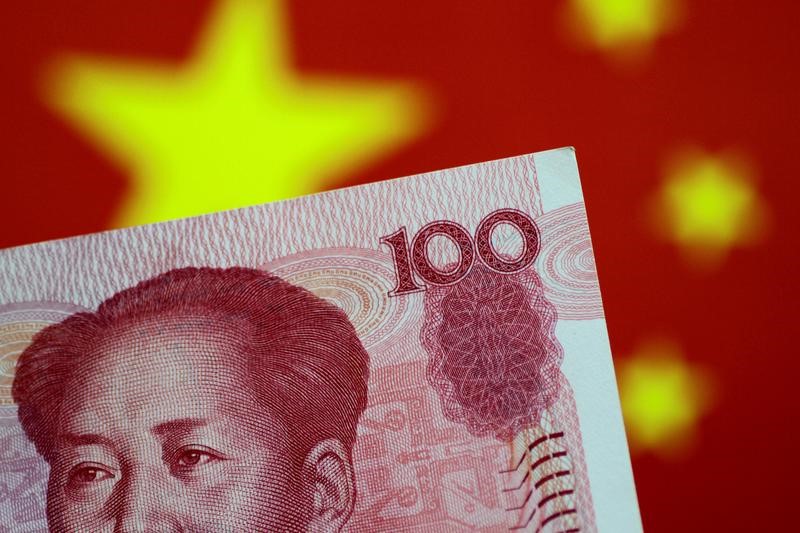

© Reuters.
Investing.com – The Chinese yuan rose against the U.S. dollar on Monday in Asia. In a report published late Friday, the People’s Bank of China (PBOC) said they would continue with stimulus while keeping the currency steady.
The pair was down 0.1% to 6.9076 by 11:30 PM ET (03:30 GMT).
In its quarterly monetary policy report, the PBOC said “trade friction and uncertainties in global policy could impact the global economy negatively.” The central bank added that inflation could be driven up if the trade war with the U.S. drags on, damaging household and corporate confidence and causing financial market turbulence.
The pair rose 0.7% to 0.6917 in Monday morning after a surprise election victory for incumbent Australian Prime Minister Scott Morrison.
The Aussie sank as low as 0.6868 last week after disappointing domestic employment data added to fears over the prospect of an interest rate by the country’s central bank, while the escalation in the Sino-U.S. trade war also sapped risk appetite.
The pair edged up 0.1% to 1.2731. Concerns over Brexit are expected to dominate sentiment on sterling.
Last week, the pound fell to the lowest since January after cross-party Brexit talks collapsed and concern grew about the impact Prime Minister Theresa May’s likely resignation would have on Britain’s exit from the EU.
The pair was up 0.1% to 110.19 after data showing that Japan’s first quarter came in at 2.1%, confounding expectations for a contraction of 0.2%. However, traders remained cautious as the expansion was mostly due to imports declining faster than exports, likely reflecting weak domestic demand.
The that tracks the greenback against a basket of other currencies was trading near flat at 97.863.
Data on Friday showed U.S. consumer sentiment jumped to a 15-year high in early May on growing confidence over the economy’s outlook, though much of the surge was recorded before the trade war escalation.